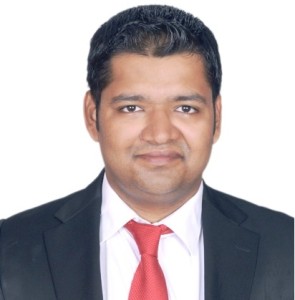 I recently completed my residency in general surgery. Towards the end of my residency, I was introduced to the world of research and publishing. Far from knowing it all, the more I explore this world, the more I realize that I should have been introduced to it much earlier.
I recently completed my residency in general surgery. Towards the end of my residency, I was introduced to the world of research and publishing. Far from knowing it all, the more I explore this world, the more I realize that I should have been introduced to it much earlier.
I believe I speak for the average medical student in India when I say that the world of research publishing is something that we are overawed by. It is assumed that only great physicians can participate in and publish their research. I can say with sufficient confidence that rarely will you meet medical students who imagine they can do the same someday. It is looked upon as an elite club where entry is extremely difficult, if not impossible. Why is this so?
The curriculum in Indian medical schools does introduce students to the concept of research—the problem being that the appeal is limited. It is largely assumed to be a “western” practice that cannot be easily replicated in India. Information on the topic is remembered to help pass exams and rapidly forgotten thereafter. It is only when the student goes on to pursue residency that the importance of research is realized. The exposure at this level is almost so sudden that it stuns the young resident.
The average medical student in India is used to reading textbooks that rarely present the subject with a research orientation. They steer away from controversy by presenting singular opinions. This is in contrast to research articles where, even if authors have one thought process, the counter opinion is presented for the reader’s consideration.
Even though these textbooks may be adequate for a medical student, the information presented is accepted as gospel truth. The student would be ill-advised to question the “facts.” Questioning in general is frowned upon within Indian medical schools, even by those in teaching positions—and students fear incurring their wrath. The student therefore learns to remain mute.
Apart from this lack of familiarity with research principles early on in their medical career, there are several reasons for the gaps in understanding of research in medical students in India. Inadequate fluency with the English language, a lack of funding, and a general lack of exposure to research in their area are only a few that come to my mind.
India has produced many great scientists and researchers in medicine. There is hardly any reason to be pessimistic. I believe that there is a need to raise the emphasis on teaching about research in medical schools.
Learning needs to include looking up databases in libraries and on the internet, advice on how to read an article, as well as how to analyze it. Students also need to be taught how to extract crucial information from a research article so that it may improve decision making in clinical scenarios. It is never too early to teach this and I believe starting early is better. Lastly, interactions with well published authors need to be arranged for and encouraged. These steps may dispel the pessimism around research in the Indian medical student’s mind.
Aditya J Nanavati is a general surgeon working in Mumbai, India.
Competing interests: None